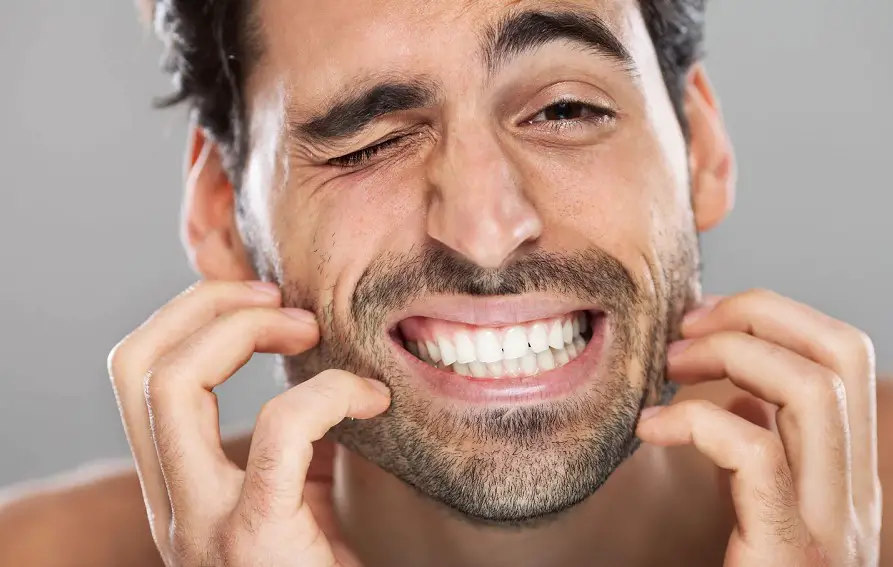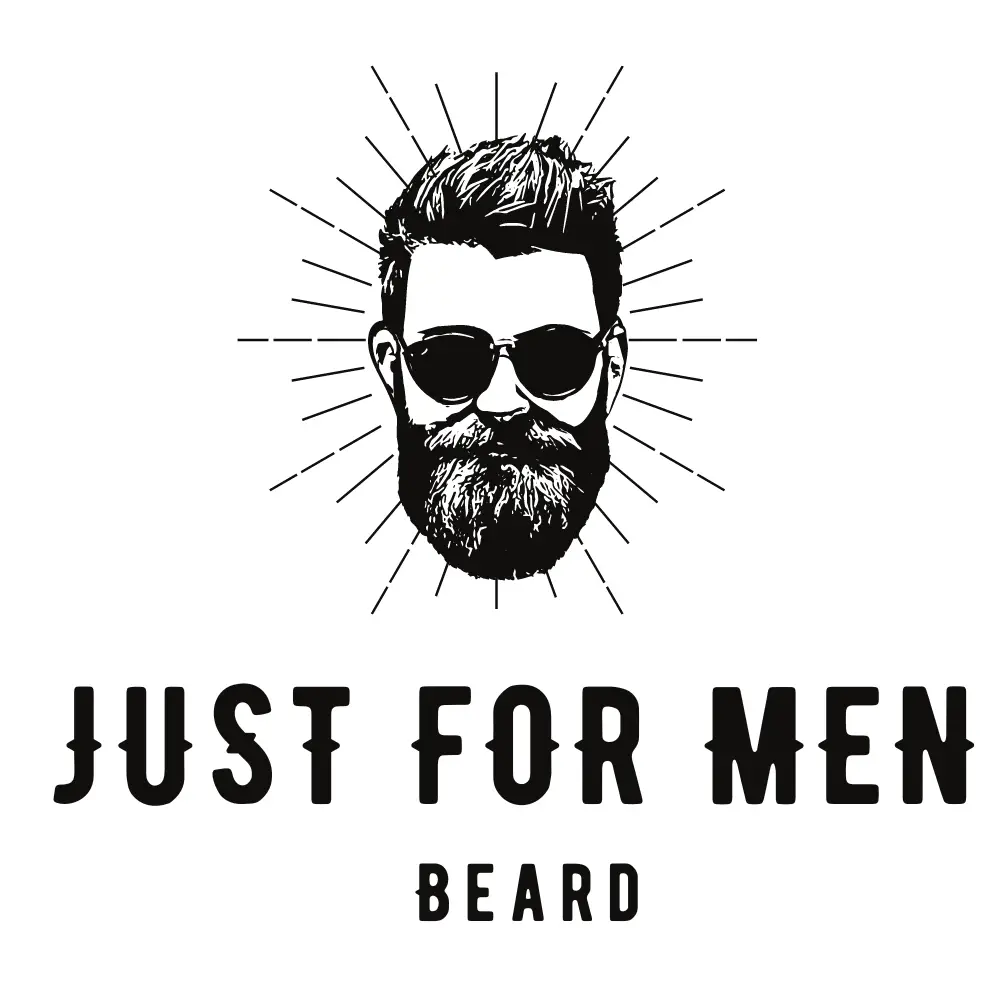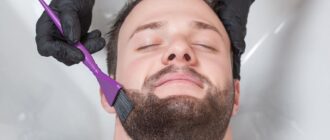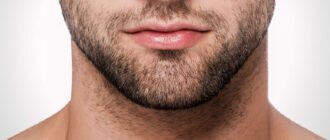Your beard may be your source of pride, but if it’s itchy, it can quickly become your source of aggravation. You should now, how to keep your beard from itching.
You’re likely not a fan of the itchiness that can follow a few days of stubble growth — especially if you’re trying to keep your beard soft, well-groomed, and presentable.
But don’t throw in the towel just yet! You don’t have to sacrifice style to keep your scruffy beard from being scratchy. The key is caring for your beard hairs in the right way — and that means understanding what causes an itchy beard in the first place.
Here, we’ll provide you with advice on how to tend to your beard so it stays unscratchable — no matter how long or short you let it grow.

Causes of beard itching
Growing a beard is no joke — it takes dedication and the right knowledge on how to stop beard itch. No one wants to keep scratching away at their face, or worse, suffer through the frustration of not being able to scratch at all.
So what causes beard itch in the first place and how to keep beard from itching? It can be any number of things — from dry skin or too-harsh products to allergens and stress. If you’re looking for ways to achieve an itch-free beard, start by understanding what might be causing it in the first place.
Beard hair isn’t like the hair on your head. It’s called androgenic hair, which means that its growth is driven mainly by testosterone.
Your beard hair is kept soft by something called sebum, which is a type of oil your body produces and secrets from the sebaceous glands of your hair follicles.
When your beard is nice and short, your hair follicles have enough sebum to go around.
But as it gets longer, sebum oil production can’t cover the demand, meaning you need to pick up the slack. A dry beard is often the result of not using enough oil, while too much product can cause clogged pores because of dead skin cells.
The inflammation can result from a bacterial, viral, or fungal infection or because of parasites.

Here are the underlying skin condition causes of beard itch:
Beard dandruff is caused by a condition called seborrheic dermatitis, which causes beard rash and the skin to flake. While experts do not know exactly what causes seborrheic dermatitis, they do know that it is a reaction to a yeast on the skin called Malassezia.
Pollen, dust, and mold can cause your skin to react and lead to itchiness. To reduce your exposure to these irritants, wash and style your beard often, and use antiseptic balms to reduce skin irritation.
Bacterial and fungal infections can cause beard itch, so it’s important to maintain a clean shave to reduce the risk of infection.
Use itchy beard remedies, or look into antibiotics or topical antifungal therapy to reduce inflammation. Ketoconazole if the cause of seborrheic eczema is a fungal infection. Glycolic acid (Neo-Strata) to treat pseudofolliculitis barbae.
Your doctor may recommend laser hair removal if you have a chronic condition that causes your itchy beard because of constant infections or other causes of inflammation. The doctor may need to make incisions for draining out any boils or carbuncles. Both of these are also known as skin abscesses.
Neglecting to wash your beard enough can also lead to a build-up of oils and dead skin cells that can irritate the skin and cause an itchy beard. Using the face wash will keep your face clean so you will not build up dead skin cells that dry out the skin.
Beard itch is a common problem that can be managed if you know the underlying cause. By maintaining proper hygiene, reducing allergens, and managing stress, you can reduce the likelihood of experiencing a beard itch.
Beard itch is an annoying and uncomfortable condition that plagues many men who have facial hair.
Unfortunately, it’s a common problem that’s not easy to get rid of, but it can be managed.
How to stop beard itch when growing a beard

Addressing beard itch during the early stages of beard growth is crucial for a more comfortable experience. Here are several tips to alleviate beard itch:
- Keep it Clean: Wash your beard regularly with a mild, beard-friendly shampoo to remove dirt, dead skin cells, and excess oils that can contribute to itchiness. However, avoid overwashing, as this can strip the beard of its natural oils.
- Moisturize: Hydrate your beard and the skin underneath by applying a quality beard oil or balm. These products help soften the beard hair, reduce dryness, and alleviate itchiness. Make sure to massage the oil or balm into the skin to nourish the hair follicles.
- Exfoliate: Use a gentle exfoliating scrub once or twice a week to remove dead skin cells. This can help prevent ingrown hairs and reduce itching.
- Trim Regularly: Even during the early stages of growth, occasional trimming can help maintain a neat appearance and prevent stray hairs from irritating the skin.
- Choose Soft Fabrics: Be mindful of the fabrics that come into contact with your beard. Opt for softer pillowcases and avoid rough or scratchy materials that can exacerbate itching.
- Stay Hydrated: Drinking enough water contributes to overall skin health, which can help alleviate dryness and itchiness.
- Patience and Resist the Urge to Scratch: It’s essential to resist the temptation to scratch your beard, as this can worsen irritation and potentially lead to ingrown hairs. Instead, gently pat or massage the itchy area.
- Consider a Beard Conditioner: In addition to beard oil or balm, you may want to use a dedicated beard conditioner to add extra moisture and soften the hair.
- Adjust Your Diet: Ensure your diet includes foods rich in vitamins and nutrients that promote skin health. Omega-3 fatty acids, found in fish and nuts, can be particularly beneficial.
- Consult a Dermatologist: If the itching persists or becomes severe, consult a dermatologist. They can provide personalized advice and recommend products or treatments tailored to your skin type.
By following these tips and maintaining a consistent grooming routine, you can significantly reduce beard itch during the early stages of beard growth.
Steps for pre-shaving preparation
When it comes to an itchy beard, the key is proper pre-shaving prep. This is why it’s important to remember the golden rule: don’t skip prepping before you start shaving!
Here are a few simple steps to make sure you give your facial hair the best chance of looking and feeling great:
- Keep your beard clean and fresh with a gentle cleanser and warm water. Soap strips away oils, so stick with a cleanser that won’t do damage.
- Apply a hydrating pre-shave oil. The quality pre-shave oil can help avoid ingrown hairs, and irritation and hydrate your skin underneath before you start shaving. It’s also a great way to condition your beard.
- Wet shave with warm water. Using hot water will dry out your skin and make it more prone to irritation. Use lukewarm water and a sharp blade for the closest possible shave.
- Rinse with cold water. The cold water helps close pores, reduce inflammation, and keep ingrown hairs at bay — so it’s key in controlling the itch associated with beard hair growth!

Tips for choosing the right razor
A good razor is another way to stop beard itch. But with so many of them out there, how do you choose one?
Here are a few pointers for choosing the right razor:
- Material. Look for a razor with a durable handle and blades that won’t get dull quickly. This is what can cause irritation, razor bumps, the dreaded beard itch, and a sharp edge at the end of the hair, which has the potential to irritate and scratch the follicle.
- Blade Count. The more blades on a razor, the better it will be at getting an even shave without skin irritation, razor bumps, or ingrown hairs.
Finding the right razor can make all the difference when it comes to keeping stop beard itch!
Post-shaving maintenance routines
After you’ve shaved, you need to develop a post-shaving maintenance routine to keep your beard itch-free. That means following the same steps with each shave, every time.
Here are some basic steps you can take to keep your beard from getting extremely itchy:
Nourish
Adding nourishing balm to your facial skin and hair routine is essential for keeping your beard from getting too dry and itchy.
Use a quality beard balm after shaving that comes with natural ingredients like almond oil and shea butter for added hydration.
Cleanse
Regularly cleansing your face and beard helps remove excess oil, dirt, and bacteria that can accumulate during the day and cause irritation.
Use a mild face or beard wash designed specifically for men’s facial hairs twice daily — in the morning and evening — to wash away the debris that might have built up during the day.
Conditioning
Conditioning your facial hair is important because it will help make sure it’s soft and smooth all day long.
Look for a moisturizing beard conditioner specifically designed for men’s facial hairs to help nourish and hydrate your beard while also stimulating the hair follicles.
Dry it properly
It’s important that you dry your beard thoroughly post wash as leaving water in the beard is a big contributor to skin drying out which will make the itch worse.
Pat your beard dry with a fresh, clean towel, or use a hair dryer to ensure you get into the base of the beard to absorb any excess water.
Finally, exfoliate with a beard brush to slough away dead skin cells. Get a high-quality beard brush and brush your beard daily
By following these simple steps after every shave, you can ensure that your freshly shaved face won’t become an unendingly irritating itch-fest!

How to find the right shaving products for your skin type?
When it comes to avoiding an itchy beard, the right shaving products are key. That’s why you should choose products based on your specific skin type — dry, oily, or combination.
Dry skin
We have all experienced itch as a result of dry skin. Combine this with sharp, coarse edges rubbing against said dry skin and you’ll get an itch that would make a flea proud.
For those with dry skin, look for products that contain hydrating and moisturizing ingredients, like aloe vera and glycerin.
A product for sensitive skin is also good for dry skin.
If you find the right product to treat dry skin, you can kiss the itch goodbye and keep your beard hair looking and feeling its best.
Oily skin
On the other hand, if you have oily skin, seek out products with clarifying ingredients that help absorb excess oil. You’ll also want to look for something non-comedogenic.
Combination skin
If your skin is a bit of both, meaning combination skin type — it’s best to invest in shaving products that are lightweight yet effective at controlling both the dryness and the oiliness of your skin at the same time.

Natural remedies for beard itch and irritation
You know the feeling, right? You’re a few weeks into growing a beard and your skin starts to feel itchy and irritated. It is uncomfortable, isn’t it?
Good news — it doesn’t have to be. There are natural remedies you can try that don’t cost too much and can help keep your skin soft and beard itch-free as your beard grows in.
Moisturize
One of the best things you can do is moisturize, gently but frequently. A good daily moisturizing routine will help you avoid the dreaded “beardruff” by keeping your pores clean, which helps maintain natural oils.
Make sure your skin and hair stay properly hydrated.
This doesn’t mean just washing it with soap — you need to use a moisturizing beard oil and conditioner. Adding in a few drops of jojoba oil can help keep the skin hydrated and reduce itching.
Find a moisturizer specifically designed for facial hair, as these often contain plant-based oils that absorb quickly to keep skin soft without feeling greasy.
Avoid aggravating ingredients
The right ingredients matter: avoid anything with harsh chemicals or detergents like sulfates that dry out your skin further.
And don’t forget to look out for any irritants or allergens in whatever products you use on your beard. These can cause inflammation, rashes, or beard itch, which defeats the purpose of using a soothing product in the first place!
Natural oils and extracts
Special beard oil with argan oil or coconut oil helps fight off flakes and ingrown hairs by trapping moisture within the follicles themselves for long-term hydration.
Extracts like aloe vera are great for soothing irritation and delivering antioxidants to keep your skin healthy from within.
Groom your beard regularly
You should groom your beard hair regularly by combing or brushing it to distribute the natural oils evenly throughout the hair.
Making sure you comb down all the hairs in the same direction also helps to reduce itching since it will lay flat against your face instead of standing up.

Conclusion
Keeping your beard from itching isn’t as complicated as it might seem. As long as you take care of your skin and your beard, you should be good to go.
Make sure you’re using a good shampoo and conditioner, keeping your beard clean and conditioned, and using oils or balms to lock in moisture and keep the itch at bay.
With the right combination of care, you can make sure that your beard stays soft, healthy, and itch-free — or, at least, as close to it as possible.
So, go ahead and continue growing a beard you want, and don’t let the itch slow you down. With some knowledge and self-care, you can ensure an itch-free path to an unscratched beard.
FAQ
Beard itch is a problem most men put up when growing a beard. To make sure your beard is unscratchable, here are some of the most commonly asked questions about beard care.
What can I put on my beard to stop itching?
Beard oil balm helps moisturize and nourish your beard. This product helps combat the pain caused by itchiness or irritation. It helps you keep your beard smooth and moisturized without flaking or irritation. Use it at the end of the morning or during a stressful time.
Why is my beard always so itchy?
If you have a large beard itchy, this is likely a sign of dryness on the beard. Face hair absorbs moisture from the skin and draws out it from the skin and onto the hair where they quickly evaporate. It leaves your skin very drier and flaky and may cause hair loss.
Why is my skin so itchy under my beard?
If the beard has recently been trimmed, it may result in ingrown hair. This occurs when hair follicle re-growth causes inflammation.
Although this affects all sorts of facial hair, curly people tend to have ingrown hair. The doctor is available for the treatment of your skin problems and itchy beard problems.
How can I moisturize my beard?
Using a high-quality wax or balm to soften beard hairs and keep your hair soft and healthy looking. It will also help protect it from UV radiation and other environmental elements that could damage it.
You might also want to consider using special beard oil with jojoba oil, grape seed oil, or argan oil for added nourishment and creates optimal conditions for hair growth.
Do beards eventually stop itching?
You might be wondering if your beard will eventually stop itching. The good news is that, yes, it will — as long as you take the right steps to care for it.
Read More: What are some itchy beard remedies?







